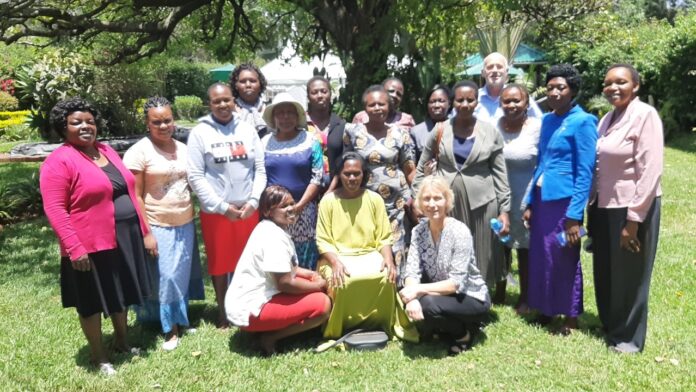A recent study by Brogan, G. S., & Dooley, K. E. (2024) titled “Weaving together Social Capital to Empower Women Artisan Entrepreneurs” published in International Journal of Gender and Entrepreneurship, shows that Women experienced economic and social benefits from cooperative membership, such as consistent income, improved living standards, and community support.
“
Artisan cooperatives in Sub-Saharan Africa empower women economically and socially, fostering consistent income, improved living standards, and community support.-Brogan, G. S., & Dooley, K. E. (2024)
The study explores the impact of artisan cooperatives on women employed in Sub-Saharan Africa, using social capital theory to examine the networks within cooperatives that lead to social and economic benefits. It employs a phenomenological approach, analyzing interviews with leaders of artisan cooperatives and documents from the cooperatives. The findings reveal key partnerships, benefits of the cooperative, and changes and growth among women and communities, highlighting empowerment through economic and social impacts. The study aims to provide models for other cooperatives to create sustainable work and impact women’s lives positively. It contributes to research on social entrepreneurship within artisan cooperatives and supports sustainable development goals like gender equality and economic growth.
How the Study was Conducted
The study employed a naturalistic inquiry within the interpretivist qualitative research paradigm, focusing on the lived experiences of women leading artisan cooperatives in Sub-Saharan Africa. The sample consisted of founders of social enterprises and cooperatives (FSECs), selected based on their English proficiency and operation of a women’s artisan cooperative or social enterprise. Data was gathered through semi-structured interviews conducted over Zoom, complemented by documents from the cooperatives for triangulation. Interpretative phenomenological analysis involved open and axial coding to identify themes from the transcribed interviews and secondary data sources.
What the Authors Found
The authors found that the formation of key partnerships was crucial for the growth and success of artisan cooperatives, providing avenues for advancement and empowerment. Women experienced economic and social benefits from cooperative membership, such as consistent income, improved living standards, and community support. In addition, the authors found that participation in cooperatives led to personal development, skill enhancement, and increased agency among women artisans.
Why is this Important
The study sheds light on how artisan cooperatives empower women in Sub-Saharan Africa. By providing consistent income, skill development, and community support, these cooperatives enhance women’s agency and well-being. The research aligns with sustainable development goals, particularly gender equality and economic growth. Understanding the impact of cooperatives helps policymakers and organizations create sustainable work opportunities for women. The study contributes to the field of social entrepreneurship by showcasing successful models. Cooperatives can serve as vehicles for positive change, benefiting both individuals and communities.
What the Authors Recommend
The authors recommend the following:
- Encourage capacity building within artisan cooperatives by providing training programs, workshops, and mentorship. Strengthening leadership skills and business acumen will enhance cooperative sustainability.
- Foster collaboration and networking among cooperatives. Encourage knowledge sharing, joint ventures, and partnerships to amplify impact and reach.
- Advocate for policies that recognize and support artisan cooperatives. Governments and NGOs can create an enabling environment through tax incentives, legal frameworks, and funding opportunities.
- Ensure gender-inclusive practices within cooperatives. Promote women’s leadership, equal representation, and decision-making power.
- Facilitate market access for cooperative products. Link cooperatives with local and international markets to improve income and livelihoods.
In conclusion, the study illuminates the transformative power of artisan cooperatives in Sub-Saharan Africa, showcasing how they serve as catalysts for women’s empowerment and sustainable development. By fostering economic stability, social support networks, and opportunities for skill development, these cooperatives not only elevate individual lives but also contribute to broader societal progress. Through strategic partnerships, capacity building initiatives, and advocacy for gender-inclusive practices, the potential for positive change within these cooperatives is vast. As we move forward, it is essential to heed the lessons learned from this research and continue championing the vital role of artisan cooperatives in advancing gender equality and fostering inclusive economic growth across the region.
















 The African Research (AR) Index is a comprehensive scholarly directory and database focused explicitly on journal publishers that publish and disseminate African research.
The African Research (AR) Index is a comprehensive scholarly directory and database focused explicitly on journal publishers that publish and disseminate African research.

